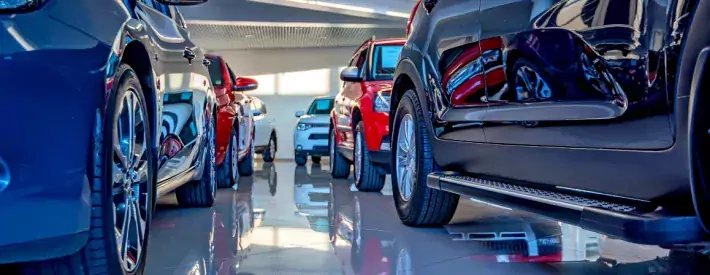Q&A: Epyx’s Debbie Fox

Debbie Fox, commercial director at Epyx explains how vehicle supply is affecting the business and where the company’s future focus lies
How are supply constraints impacting your business and how are customers coping with longer lead times?
The main strategy that many [of our customers] have adopted to cope with poor new car and van supply is to extend replacement cycles. This places additional pressure on their service maintenance and repair management with some vehicles now more than a year or sometimes even two years past the point when they would normally be replaced. Obviously, as cars and vans age, there is a greater chance of them breaking down as well as an increased emphasis on ensuring they remain roadworthy. Our platform allows them to manage their service, maintenance and repair (SMR) requirements effectively.
When do you expect the new car and van supply squeeze to ease?
It remains difficult to say. Trading through our fleet remarketing platform is showing high prices, so there is clearly little sign of increased supply feeding through into the used sector at a level that is starting to satisfy demand. We initially expected that this year would bring some measure of relief but the situation in Ukraine may well hit new car production in Europe to a considerable extent and delay the time at which we see a normal level of supply once more. Having said all of that, we remain hopeful that there will be some noticeable easing by the end of the year.
What one thing would you change to make your job simpler?
Quite often decisions to adopt new ideas, processes and technology of the kind that Epyx provides are taken at a corporate level, sometimes not just by the UK board but the European or even global board. Communicating the advantages of our latest thinking is not always easy through video conferencing and physically getting in front of these decision makers because of travel restrictions over the last two years has been tricky, for obvious reasons. This situation is now beginning to ease, which is certainly making my job simpler. When you can demonstrate technology face-to-face, it is always easier to sell.
What impact will the switch to EVs have on your business?
Probably the key effect will be their different SMR profiles compared to petrol and diesel vehicles. The truth is that we are still discovering exactly how this change will play out but what we can see through the 1link Service Network so far is that EV maintenance looks as though it will tend to be weighted more into the later stages of the vehicle’s fleet life, especially when it comes to tyre wear and subsequent replacement. As soon as we have sufficient data, we are hoping to share some of our findings about EV SMR with fleets and dealers - but first we want to make sure that the information is absolutely sound.
What is your key focus for the next six months?
We’re working on bringing a new product to market that will make use of connected vehicle technology, which we see as co-existing alongside traditional telematics before perhaps becoming its obvious successor. It is set to enter a proof of concept phase through testing with several major vehicle leasing companies during the next few weeks. To some extent, the means to collect connected vehicle data is available to potential competitors and there are several in the market already offering the raw information. Instead, our expertise as a business lies in presenting that data in a manner that really delivers benefits for potential customers at the right price.





